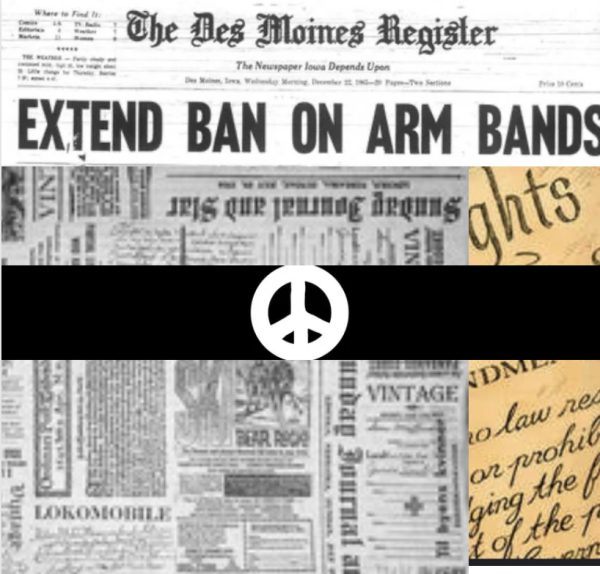Help a Sister Out: Female Advocacy at La Salle
December 13, 2017
As many as 100,000 people attended the Portland Women’s March this year, making the event one of the largest marches in Portland’s history. After seeing such a huge demonstration of support for women in our own town, I wondered why our school did not have a group to address such a popular and relevant cause. After talking to Brigid Hanley about the absence of such a group, we decided that since nobody else had taken the initiative, we had to be the ones to act.
The result was the Sister to Sister Club, a group that focuses on combating issues that overwhelmingly affect women like domestic abuse, single motherhood, sex trafficking, and sexual assault. Of course, men have also been affected by these issues, but because of the incredibly large number of women that experience one or more of these issues in their lifetime, we decided to focus our efforts on female victims.
The first objective of the club was surveying our community. We wanted to know what people thought about the cause that motivated our group, particularly why people believe it is important to support women in difficult circumstances. The results of the survey were astonishing: we received over 40 meaningful responses from students, with many respondents volunteering to share their opinions in this article.
In the responses, some students discussed empathy and social justice, while others touched on how difficult it can be to stand in solidarity with suffering women due to the social consequences. Often, when people speak out against issues that affect women, they are branded as “man-haters” or other offensive labels. Even the simple title of “feminist” can carry a negative connotation and earn a person criticism from his or her peers. I experienced the backlash against feminism firsthand when I started this club as I heard people write me off as “just another angry feminist” or, on one occasion, a “feminazi.” All of this stigma surrounding female advocacy often prevents people from working to combat these issues, ensuring that the issues facing women continue. Everyone, myself included, could learn from the courage that female activists display in facing social stigma and speaking out anyway, simply because the cause is too important to ignore.
Below are some of the responses to the survey, both from named respondents and those who wished to remain anonymous.
Alexis Han, senior:
“Supporting women in difficult circumstances is important to me because women are stronger when we work together. The women that deal with sexual harassment or domestic abuse are no different than our mothers and sisters. But most importantly, they are humans–humans who have been dealing with issues that we as a society don’t focus on enough. Having a community where women know they can rely on each other is essential to helping these women break out of their circumstances.”
Mrs. Kelvin:
“It is important that all women are given a voice, but especially for those women who have been marginalized and left feeling powerless by factors such as poverty, domestic violence, immigration status, sexual orientation, and gender identity.”
Claire Asato, junior:
“This topic should be important to everyone. This survey should really ask why someone would not want to support women in difficult circumstances. Sometimes in our school community you are seen as “weak” or “dumb” if you support women’s equality in general. Previously, I was made fun of for months because I said that I thought women should have equal rights as men, and I received hate for quite some time. Supporting women in difficult circumstances is something we all should be doing, without question or criticism.”
Cami Gallawa, freshman:
“Supporting all women is important to me because everyone deserves a voice in the world, and for some women, that voice is taken away from them. Helping people in need, especially our fellow women, is so important, because I know if I were in that situation, I would be grateful for help and guidance.”
Grace Elkhal, sophomore:
“I believe women are degraded. They are not considered as important contributions to society compared to masculine contributions. So, if women are struggling and undergoing difficult situations, they deserve the same chance as men in society. When everyone supports men and offers them opportunities to make a difference… why not do the same for women?”
Gili Kaptur de Jesus, sophomore:
“I firmly believe that everyone deserves equal rights. In today’s society, women still do not have the same privileges [as men]. I also think it’s important to that no one should be put in horrible situations [like single motherhood or sex trafficking]. My heart hurts for those suffering women so I believe it’s important to help them and make sure these events never happen again.”
Anonymous, freshman:
“Women make up half of the world, and they deserve to be treated fairly, just like men. Women should be free of constraints and should be able to live their lives peacefully, just like men. When women are abused or treated unfairly, this is should be seen as injustice, not a regular occurrence.”
Anonymous, freshman:
“Women are a treasure. They are like flowers: they wither alone, but with the support of another, they flourish and show beauty of what they truly are once they open up.”
If you would also like to share your opinion on supporting women, feel free to comment below. Additionally, if you are interested in combating issues like single motherhood, domestic abuse, sexual assault, and sex trafficking, don’t hesitate to reach out to me at [email protected] to join the Sister to Sister club or to participate in our service.


